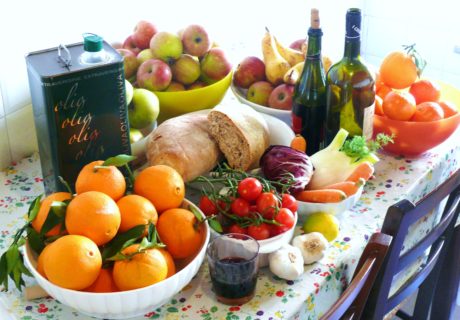Trusted traditions, plant-power, waste not, time sensitive, the night shift – these are the big food trends to watch for in 2017, says food industry analyst Mintel.
Leveraging tradition
In its annual food and drinks trends report Mintel says innovative twists on trusted traditional products are likely to feature large in food and drink NPD in the coming 12 months. Consumers are seeking “comfort” in familiar products as world events threaten a year of unpredictability and change. But, the report says, the trend doesn’t eliminate the need the need for evolution: “Leveraging tried and tested formulations will lead to more accessible innovations.”
Power to the plants
Mintel says “preference for natural, simple and flexible diets will drive further expansion of vegetarian, vegan and other plant-focused formulations”. In response, more manufacturers are releasing and promoting formulations that centre on plants and the flavours, fortifications and functionalities they can add to food and drink products. Mainstream brands now see plant nutrients as “lending a health halo to formulations”, the report notes.
The report also predicts that innovations in plant-food products will increasingly acquire a technological edge. It suggests that artificial intelligence (AI) algorithms already “understand food at the molecular level as well as human taste and texture preferences”. However, some experts warn that techno-products might not function as nutritionally expected. Speaking to the Daily Telegraph, Tim Spector, professor of molecular genetics at King’s College London and author of The Diet Myth: The science behind what we eat, said: “You might be able replicate the textures and forms of foods through AI, but you can’t replicate the function of that food in the body. For example, the lactose in milk will contain bacteria that feed your gut flora, that can’t be replicated with AI.”
War on waste
Mintel says that the focus on sustainability will zero in on eliminating food waste in 2017. As consumer awareness of the issue increases retailers are likely to pull back from offers and promotions that are seen as being directly linked with food wastage. Mintel predicts that ‘intelligent packaging’ will become part of the frontline battle in the war on waste, while the “stigma” of so-called ‘ugly fruit and veg’ will fade.
Fast, fast, slow
Mintel says that the “time investments” for products will become as influential as nutrition or ingredient claims, noting that on-the-go claims increased 54% between 2010-2016. But it says that “time conscious doesn’t always mean ‘fast’. Instead many consumers are seeking balance, so there is a growing appeal for products making ‘slow’ claims (slow-roasted, slow energy release and so on)’. In fact, the number of products including the word ‘slow’ in their product descriptions grew by an extraordinary 214% berween 2010-2016.
The night shift
Evening is increasingly being tapped as a new occasion for functional food and drink formulations, say Mintel. “As technological advances make it harder to ‘clock out’ more people are in need of products that provide comfort or relaxation. This is creating a market for night-time products and ‘calm-down’ formulations.
Health for all
Mintel says that healthy food and drink are shedding their luxury image. “Inequality is resonating more than ever in food and drink,” says the report. So, while health food has in the past been characterized as a preserve of the middle class or wealthy, this is becoming politically unacceptable. “Healthy solutions need to be made accessible to people on more modest means,” the report’s authors write. Interestingly, the data suggests that poorer households are actually slightly more motivated to be healthier than other socio-economic groups.





